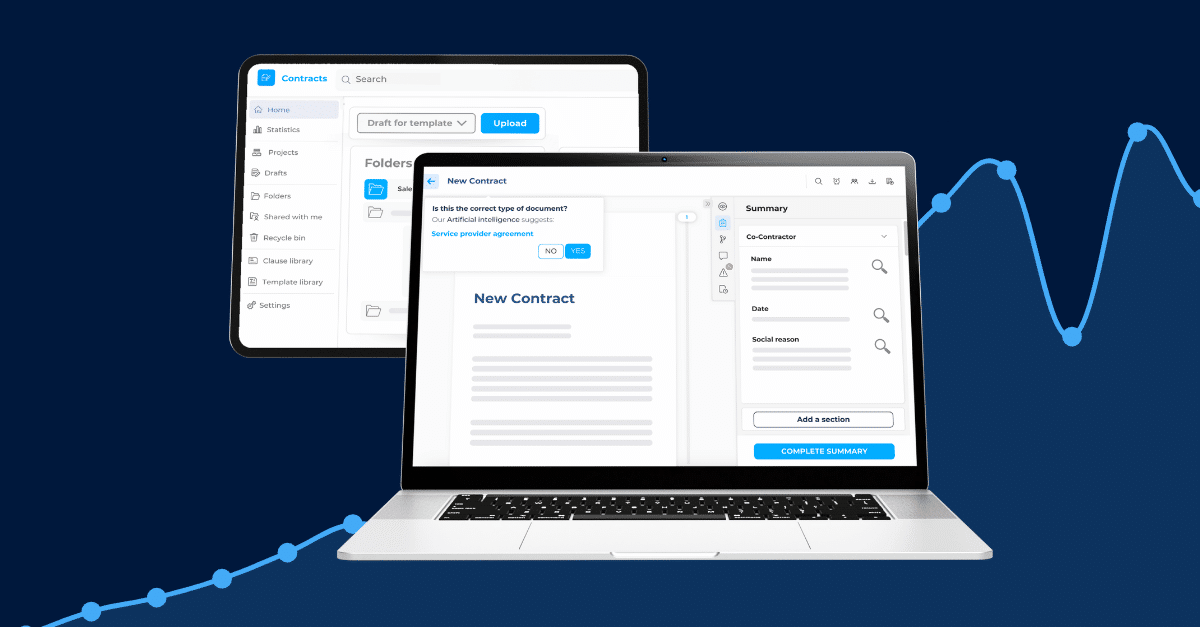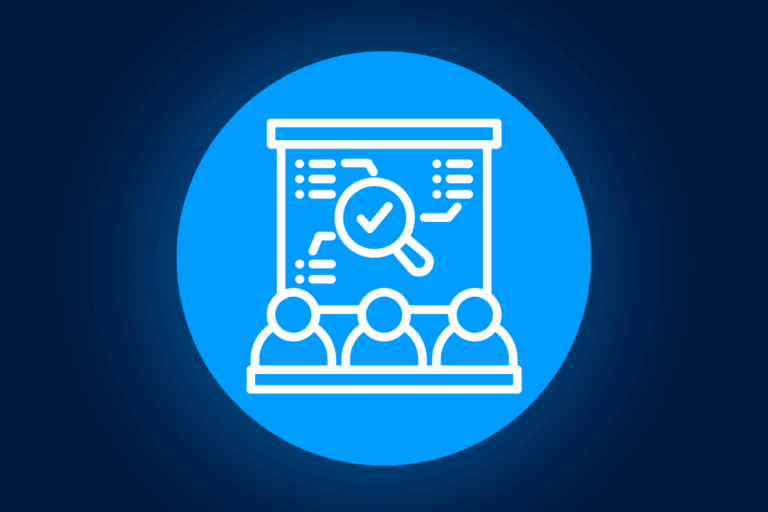Contract compliance protects businesses from risk and financial loss by ensuring all parties meet their obligations through standardized procedures, audits, and digital enforcement tools. Modern AI-driven platforms and centralized repositories have turned compliance into a strategic function, improving visibility and reducing legal exposure. This shift strengthens business relationships by fostering trust and transparency.
Contract compliance forms the backbone of successful business relationships and operational efficiency. Organizations across industries face increasing pressure to maintain rigorous oversight of their contractual obligations while navigating complex regulatory environments. This comprehensive guide explores how businesses establish effective contract compliance frameworks, overcome common challenges, and leverage technology to streamline compliance processes.
What Is Contract Compliance?
Contract compliance refers to the systematic process of ensuring all parties fulfill their contractual obligations according to agreed terms and conditions. It encompasses monitoring, tracking, and managing contractual requirements throughout the entire contract lifecycle.
Effective contract compliance goes beyond simply checking boxes. It requires a strategic approach that integrates people, processes, and technology to create a comprehensive compliance framework. This framework typically includes:
- Regular monitoring of contractual obligations
- Tracking key dates, milestones, and deliverables
- Verifying adherence to quality standards and performance metrics
- Ensuring regulatory compliance across jurisdictions
- Managing contract amendments and modifications
For organizations managing hundreds or thousands of contracts simultaneously, maintaining compliance becomes increasingly complex yet critically important for risk management and operational success.
The Business Impact of Contract Compliance
The consequences of poor contract compliance extend far beyond legal concerns. Organizations with robust compliance processes experience significant benefits across multiple business dimensions.
Risk Mitigation
Effective contract compliance substantially reduces legal and financial risks. By systematically tracking obligations and deadlines, companies prevent costly breaches and minimize exposure to penalties. Additionally, compliance programs help identify potential issues before they escalate into serious problems.
The DiliTrust Risk Detector is an AI-powered tool designed to streamline contract review and enhance compliance. Built on proprietary technology, it automatically identifies risky or non-compliant clauses, applies company-specific playbook rules, and suggests redlines or alternative language. With support for multiple formats and languages, it accelerates legal workflows while ensuring consistency and security. Fully developed and managed in-house, the Risk Detector offers enterprise-grade privacy.
Financial Performance
Contract compliance has a direct and measurable impact on an organization’s financial performance. Companies with mature and well-managed compliance processes are able to reduce contract value leakage, significantly preserving revenue.
Additionally, these organizations often see a decrease in administrative costs due to streamlined workflows and fewer manual interventions. Improved management of payment terms also contributes to healthier cash flow, offering further financial stability and operational efficiency.
Relationship Management
Consistent contract compliance builds trust with customers, suppliers, and partners. When businesses reliably meet their obligations, they establish themselves as dependable partners, creating stronger, more productive business relationships.
Common Contract Compliance Challenges
Despite its importance, many organizations struggle with contract compliance. Understanding these challenges is the first step toward addressing them effectively.
Limited Visibility
Many companies lack centralized contract repositories, resulting in scattered documents across departments, email inboxes, and shared drives. This fragmentation makes comprehensive compliance monitoring nearly impossible.
Manual Processes
Traditional compliance tracking relies heavily on spreadsheets and calendar reminders. This manual approach is not only time-consuming and resource-intensive, but also highly susceptible to human error. Additionally, as the volume of contracts grows, these systems become increasingly difficult to scale effectively.
Regulatory Complexity
Organizations operating across multiple jurisdictions face varying regulatory requirements. Keeping pace with changing regulations presents a significant challenge, especially for international businesses.
Best Practices for Ensuring Contract Compliance
Implementing these proven strategies helps organizations establish effective contract compliance programs that reduce risk and improve performance.
Standardize Contract Creation
Standardization serves as the foundation for effective compliance. By creating template libraries with pre-approved language, companies are able to reduce variations in contract terms, which in turn helps minimize compliance risks associated with non-standard clauses. This approach also significantly accelerates the overall contract creation process.
Implement Robust Review Workflows
Structured review processes ensure contracts receive appropriate scrutiny before execution. Effective workflows establish clear approval hierarchies based on the contract’s value and associated risk, and they incorporate automated routing to the relevant stakeholders. Additionally, maintaining a documented review history provides a reliable audit trail for future reference.
Establish Regular Compliance Audits
Periodic audits help identify compliance gaps and improvement opportunities. Effective audit programs include:
- Scheduled reviews of high-value and high-risk contracts
- Random sampling of contracts across departments
- Documentation of findings and corrective actions
Leveraging Technology for Contract Compliance
Modern contract management solutions transform compliance from a reactive burden to a proactive strategic advantage.
Centralized Contract Repository
A secure, centralized repository provides the foundation for effective compliance management. By consolidating all contracts into a single, authoritative database, organizations create a single source of truth that enhances visibility and consistency. This centralized system enables comprehensive search and reporting capabilities, while also maintaining version control and preserving the complete document history.
Automated Monitoring and Alerts
Automation eliminates the need for manual tracking by proactively managing key contract activities. It sends timely notifications for upcoming deadlines and important milestones, ensuring that nothing falls through the cracks. Additionally, automated systems can flag potential compliance issues before they escalate, providing an added layer of risk prevention. As contract volumes increase, these systems scale seamlessly, maintaining efficiency without additional manual effort.
Advanced Analytics
Contract analytics tools play a critical role in transforming raw contract data into meaningful, actionable insights. By identifying patterns and trends across the entire contract portfolio, these tools help organizations uncover potential compliance risks and highlight opportunities for improvement. They also deliver key metrics that enable teams to effectively measure and track compliance performance over time.
AI-Enhanced Compliance
Artificial intelligence significantly enhances contract compliance capabilities by automating complex, time-consuming tasks. It can automatically extract key terms and obligations from contracts, ensuring that critical details are accurately captured and tracked. AI also helps identify non-standard or potentially risky language that may introduce compliance vulnerabilities. It also enables real-time comparison of contract terms against established company policies, making it easier to enforce standards and reduce legal exposure.
Implementing a Contract Compliance Program
Creating an effective contract compliance program requires a structured approach focused on people, processes, and technology.
Assessment and Planning
The journey toward stronger contract compliance begins with a thorough assessment of your current contract landscape. Start by conducting a comprehensive inventory of all existing contracts and their storage locations. This step helps surface any compliance gaps and highlights key areas that require immediate attention. With this foundational understanding, organizations can define clear compliance objectives and establish measurable success metrics to guide the program forward.
Technology Selection
The ideal contract management software should be scalable to support future growth and offer robust integration capabilities to seamlessly connect with your existing systems. Equally important are strong security features that protect sensitive contract data and ensure adherence to relevant industry regulations and standards.
Process Development
Well-defined processes include establishing clear procedures for contract creation and approval, as well as systems for tracking obligations and managing compliance over time. Reporting and remediation processes must also be in place to address issues promptly. To sustain these efforts, organizations should commit to ongoing evaluation and continuous improvement of their compliance framework.
Training and Change Management
Effective implementation depends on organization-wide buy-in, which is achieved through structured training and strong change management practices. All users should receive comprehensive training tailored to their roles, ensuring they understand how to use new tools and follow new processes. Communicating the importance and value of compliance helps foster a culture of accountability, and recognizing or rewarding compliance-focused behavior can further reinforce these efforts.
How DiliTrust Enhances Contract Compliance
The DiliTrust Suite offers a comprehensive solution for contract compliance challenges. Its Contract Lifecycle Management (CLM) module provides:
- A secure, centralized repository for all contracts
- Automated tracking of obligations and deadlines
- Advanced analytics for compliance monitoring
- AI-powered contract analysis and risk identification
- Integration with other governance modules for comprehensive oversight
Organizations using DiliTrust’s CLM module report significant improvements in compliance rates, reduced administrative costs, and enhanced visibility across their contract portfolios.
Turning Compliance into a Competitive Advantage
Contract compliance represents a critical business function that impacts risk management, financial performance, and stakeholder relationships. By implementing standardized processes, leveraging appropriate technology, and fostering a compliance-focused culture, organizations transform contract compliance from an administrative burden into a strategic advantage.
As regulatory requirements continue to evolve and business relationships grow more complex, effective contract compliance becomes increasingly important. Organizations that invest in robust compliance programs position themselves for sustainable success in today’s challenging business environment.For more information about how the DiliTrust Suite can help your organization enhance contract compliance, contact our team to request a personalized demonstration of our Contract Lifecycle Management solution.




